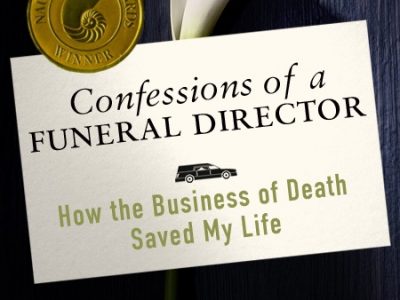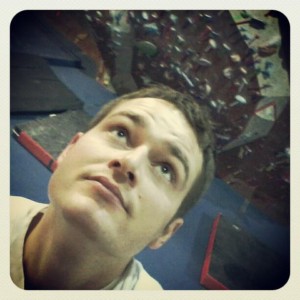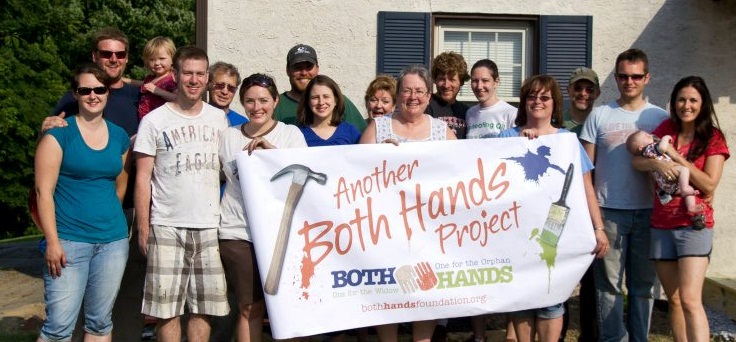Funerals: Touching is Safe Here
In our culture, touch is too often motivated by
1.) Desire.
2.) Demand.
Many don’t know how to touch outside of those two categories.
There’s a rather new interdisciplinary area of study called haptonomy which explores how to touch outside of the desire and demand categories. Haptonomy is the study of psycho-tactile communication. Psychologist and hospice pioneer Marie de Hennezel writes concerning her training in haptonomy:
One develops and tries to ripen one’s human faculties of contact; one learns to ‘dare’ to encounter another human being by touch. It may seem foolish to undergo formal training in order to develop a basic human faculty. Unfortunately, the world in which we all grew up and continue to develop is one that doesn’t encourage spontaneous emotional contact. Certainly we touch other people, but that’s when the intention is erotic. Other times, the context is impersonalizing, as in the medical sphere, when one is most often manipulating ‘bodily objects.’ What is forgotten is what the whole person may feel. “
There’s touching with desire, touching with demand and — here’s a third option — there’s touching with devotion. Touching with devotion is an ardent recognition of the value of people … it’s not forceful or uncomfortable, rather it’s respectful and produces ease.
There’s one place where the humanizing, respectful and relaxing touch of devotion is seen on a regular basis.
That place is death.
We receive the phone call that so-and-so has died at their home. We put on our dress cloth, drive to the house and there awaiting us is so-and-so’s family. We walk in and instead of shaking their hands, we reach for a hug. And they reach back.
Complete strangers.
At the funeral of so-and-so, family and friends hug and kiss and embrace all day. It’s those hugs and embraces that somehow make a funeral bearable … they somehow relax the otherwise tumultuous experience of death.
The irony is that a human has to die for true humanity to be found.
*****
Mainstream medicine is catching on to the power of devotional touch.
The University of Miami conducted over 100 studies on the power of devotional touch and this is what they found: Devotional touch can: produce faster growth in premature babies
caused reduced pain in children and adults
decrease autoimmune disease symptoms
lowered glucose levels in children with diabetes
improved immune systems in people with cancer.
Other studies have show that devotional touch can
lower stress levels
boost immune systems
help migraines.
Why do we reserve the life giving power of touch only for death and funerals?
What would happen if we would daily interact with our friends and family like we were at a funeral?
10 Burdens Funeral Directors Carry
Note: I wrote this article over the weekend and I wasn’t going to publish it until Wednesday, but since I just spent my entire night [11 PM to 5:45 AM] picking up three deceased persons, I thought it’s probably appropriate to post it now. After I hit “publish”, I’ll be off to bed and back to work by noon. Ah, the joys of a small family business.
If you’re in the Parkesburg area and want to donate coffee* to my bloodstream, you’ll find me at 434 Main St.
*I prefer a medium cup of Dunkins Donuts with cream and sugar : )
*****
The following burdens are not necessarily funeral service specific, but many, if not all, come with this profession. Those of us who stay in this profession do so because we find serving others in their darkest hour extremely rewarding, yet there are burdens to be borne. Here’s ten.
One. A Lack of Personal Boundaries.
The phone rings at 3 AM in the morning with a hospice nurse on the other end of the line telling you that so-and-so has died, that so-and-so’s family is requesting your services and that the family of so-and-so is ready for you to come and pick up so-and-so.
The phone rings at 6 PM the next day. Someone needs to see so-and-so … he simply can’t believe so-and-so is dead and must come to the funeral home at once to see so-and-so.
Two. Depression.
While those of us who stay in this business do so because we love serving people, the lack of personal boundaries can lead to depression.
Depression, because my son’s baseball game was at 6 PM, but somebody in so-and-so’s family needed to see so-and-so this very minute. Depression because the emotional needs of others somehow always trump my personal life needs. And all of a sudden “I’m not a good father” and “I’m not happy with my life.”
Three. Psychosis.
Psychologist Carl Rogers described how he “literally lost my “self”, lost the boundaries of myself…and I became convinced (and I think with some reason) that I was going insane”. When we in human service, and death service, become pulled into the whole narrative of death and dying, we can lose ourselves.
Four. Smells.
An iron stomach I have not. Putrid smells, this business has many. This is a burden that comes home with me … a burden that my wife often notices shortly after I walk through the door.
Five. Life Secrets, Death Secrets and Practice Secrets.
When a person commits suicide or dies from an overdose, there are times when the family simply wants to keep the manner of death a secret from the public.
I don’t mind carrying the burden of a secret, but when you live in a small town where suspicion can run rampant, secrets can become heavy.
Some things we see will remain with us forever. They are so disturbing, so terrible that we do the world a favor by not sharing them.
Six. Isolation by Profession.
Death makes us different … not necessarily unique, just different. This difference creates a chasm between us and those not immersed in death. Sure, police, doctors, psychologist, etc. have chasms created by their professions, but ours – because of the fear, sadness and undefined hours of our practice – creates us into something other.
Seven. Death itself.
Death can be a beautiful experience in the life of a family. But when that death is tragic and unexpected, death is a heavy burden for both the family and for those who serve the family. Specifically, when the death is a young person, our entire staff becomes agitated and moody.
Eight. Workaholism.
Many funeral homes are small businesses that don’t have enough staff for shift work. In order to serve our families (so that they’ll return), we have learned that the way to overcome the depression and potential psychosis that can come with a lack of personal boundaries is to marry the business. We make the work our life. Such work addiction pleases the families we work for, but can leave our personal families destitute.
And while many of us don’t carry the burden of workaholism, we do carry the burden of fighting off the addiction.
Nine. Death Logistics Stress.
Every business has stress. Some more and some less. And while funeral service can’t claim a quantitative difference in stress, it can claim to have its very own type of stress. To grasp the type of stress surrounding a funeral, imagine planning a wedding in five days, except where there’s joy, sadness exists, and where there’s usually a bride, a dead body lies in state.
Ten. Dress clothes …
… in the summer heat. Dress clothes in the dead of winter. We are one of the few — armed service members are the only others I can think of — professions that wears suits outdoors as a matter of practice. There’s nothing like having sweat drip down your back and into your crack. Well, nothing except maybe freezing your dress shoe covered toes in a foot of snow.
The Day We Helped Out a Widow
As many of you know, my wife and I are in the process of adopting our three and one half month old Jeremiah. We were there on the day of his birth and have been with him ever since.
We have an open adoption with Jeremiah’s birth mom and we love her immensely.
The process of adoption is incredibly beautiful, but it isn’t cheap. My sister Leah organized a fundraiser for us through “Both Hands”. Both Hands’ purpose is to help people raise funds for orphans (adoptive children) while serving widows through home improvement projects.
A couple weeks ago, a team of our family and friends tackled a number of projects at Jane Rudewick’s home. My amazing friend, Andrew Hostetler, put countless hours into capturing the day on video and editing it down to an inspiring five minutes.
So, here’s a full 10 hours of pure goodness concentrated down into five minutes of unadulterated smile inspiring footage:
“Will You Help Me Pick Up a Body?”
This is a question I’ve had to ask a few of my friends ever once upon a busy day at the funeral home.
House pick ups are different than hospital and nursing home pick ups. “House calls” as we call them often involves obstacles (like stairs, furniture, etc.) that one person cannot overcome along.
While hospital and nursing home pick ups usually only require ONE person to make the removal, house calls require TWO.
There’s three of us at the funeral home who are capable of making house removals. When one out of those three is on vacation, leaving two behind, things can get sticky. Every once upon a busy day when we are picking up more bodies than our personnel can handle, I’ll have to randomly call in some back up … which usually ends of being one of my buddies.
Last year I called two separate friends on two separate occasions.
When I called both of them, I gave them this line:
“Do you want to make $150 dollars for an hour’s worth of work?”
“Sure!”, they said.
And when I told them HOW that $150 was to be made, both were still willing. After telling them what to wear, how the whole procedure would work and what they should expect, they both did a wonderful job. In fact, on one occasion, we arrived at the home of the deceased and the family feed us pizza. I paid my buddy $150 and he got free pizza too. Good deal.
This past Friday I was in the too-many-calls-with-too-little-personnel situation. Both of the friends I had called before were on vacation, so I called up another friend.
“Do you want to make $150 for an hours worth of work?”
“Sure”, he said. And then he asked, “Do I have to touch a dead body?”
“Yes.”, I said.
“Then $150 isn’t enough. I don’t want to touch a dead person.”, he stated.
I totally understood his position, told him I’d hold this over him forever and was able to find someone else who was willing to touch the dead.
How would your respond if your friendly funeral director asked you for help? Take my survey:



